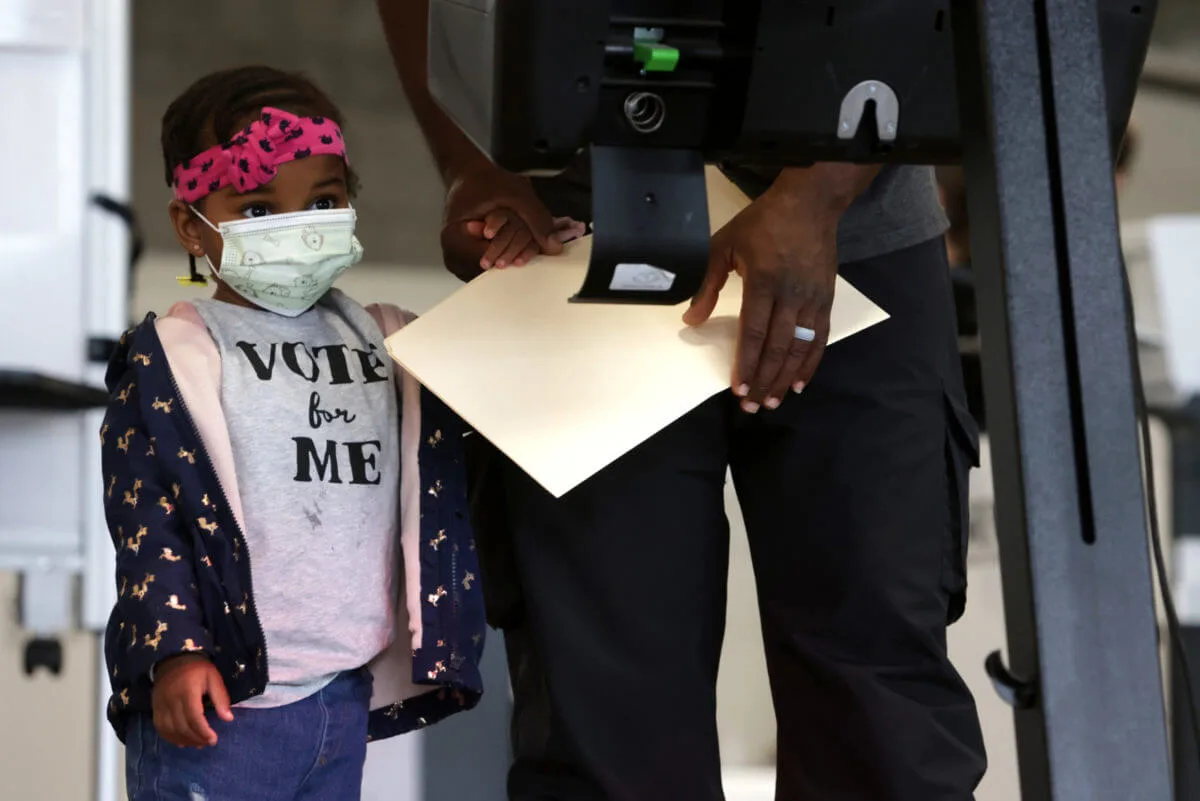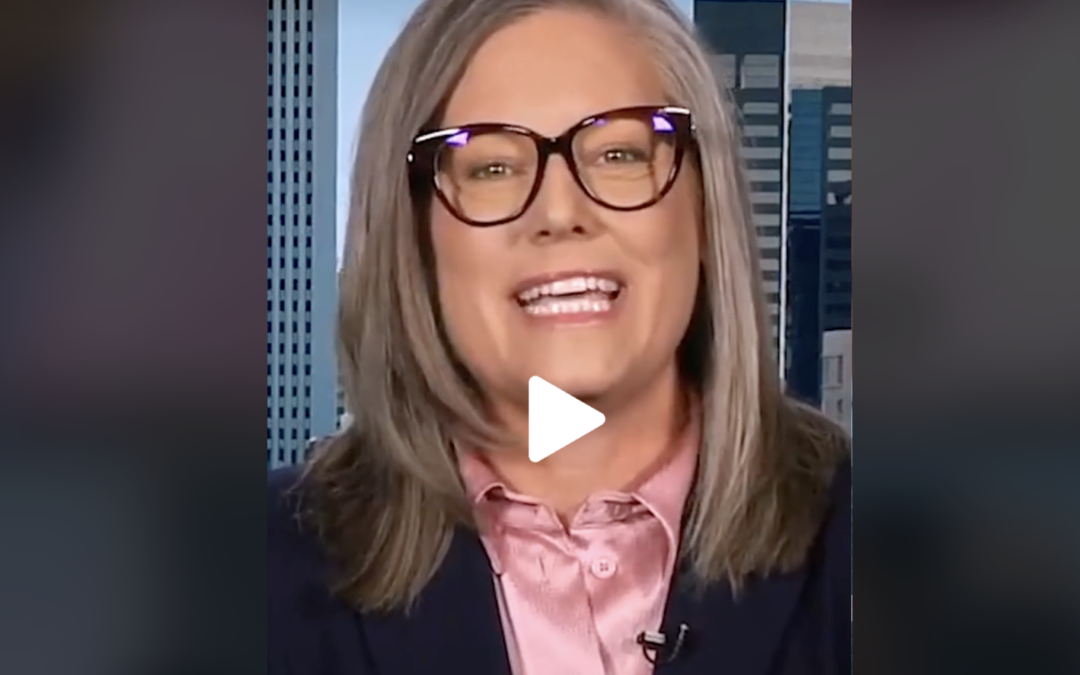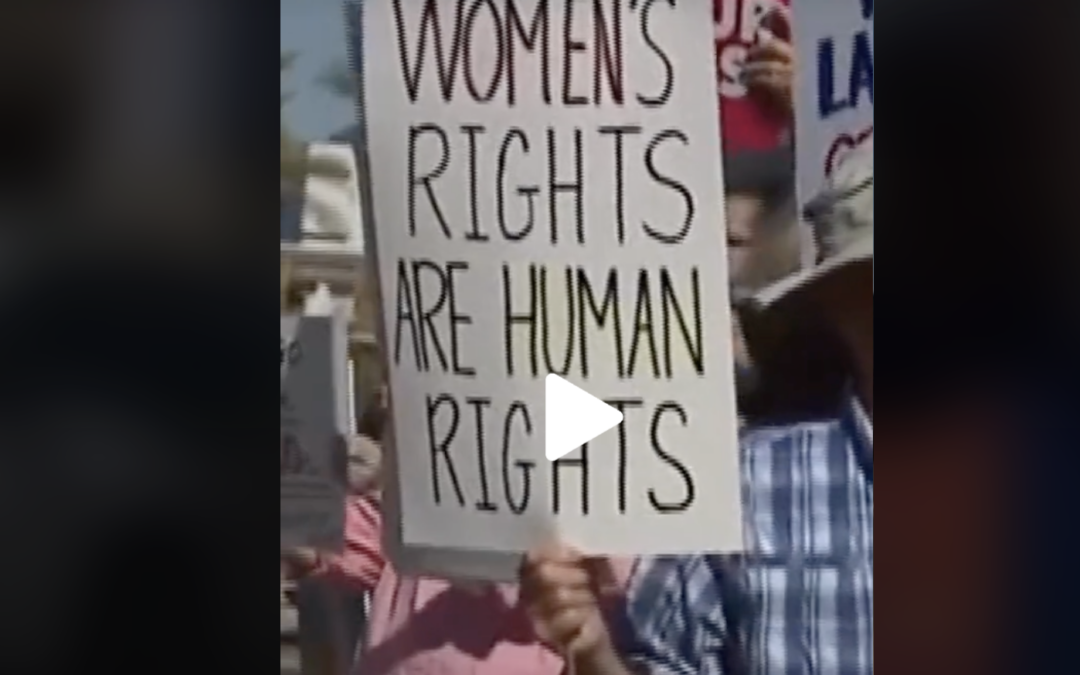
Two-year-old Aissatou Barry accompanies her father to vote at an early voting center at Union Market October 27, 2020 in Washington, DC. (Photo by Alex Wong/Getty Images)
Holly Merkle, a licensed independent social worker who works with children through the Ohio Department of Education, shares some tips to guide parents and kids through political discussions and Election Day (and night) stress.
Children of all ages and phases absorb information from the adults in their lives—whether it’s around the dinner table or in the classroom. Even kids as young as three years old are able to comprehend aspects of civic responsibility and presidential elections. While they may not get the nuances around the electoral process or have the vocabulary to express their knowledge, one thing is for certain: Kids understand more than we give them credit for.
This election year has looked wildly different from years past, largely due to the pandemic and an increase in early voting and mail-in voting options, which have broken records across the country. As of Friday morning, more than 84 million people had cast their ballots.
New challenges this year, like the influx of absentee ballots overwhelming the system and polling site staffing shortages caused by the pandemic, will result in longer counting and reporting timelines, which vary from state to state.
Sorting Fact From Fiction: Sign Up for COURIER’s newsletter.
No wonder nearly 70% of American adults say the presidential election is a significant source of stress. And with the very real possibility that the results may take days or longer to confirm—not to mention the anxiety underscoring this pivotal political moment in history—many parents are wondering how to navigate the coming days.
That’s why we asked Holly Merkle, a licensed independent social worker who works with children through the Ohio Department of Education, to share some expert tips to guide parents and kids through political discussions and Election Day (and night) stress.
Keep Calm and Carry On
Children are like sponges—they absorb everything. That means if you find yourself fidgeting nervously or biting your nails, your kids will more than likely pick up on those behaviors. “I think the most important thing for parents to remember is that children do take cues from adults, so it is critical that we model calmness and civility,” Merkle told COURIER. “If you notice you are struggling with negative emotions, find positive outlets and ways to take care of yourself so that your emotions do not trickle down to your children.”
Merkle suggests being intentional about self-care for you and your family. This can vary from person to person, but maintaining good sleeping habits through the next few days can help, as well as getting physical exercise. Never underestimate the power of a long family walk.
Focus on What You Can Control
“There are so many aspects of life out of our control right now, so focusing your energy on things in your control can help reduce anxiety and improve your overall well-being,” Merkle said.
One thing you might consider doing is limiting your media exposure. Doing so can alleviate the “fight or flight response” and mental health problems caused by constant media exposure during the 24/7 news cycle we’re in, according to research published by Health Psychology.
Another way to demonstrate control over what feels like an unpredictable situation is to do your part as a citizen and vote. If you’re voting in-person this year, bring your children (along with masks and hand sanitizer) with you to the polls. Tell your kids: “We’re actively participating in a huge, history-making chapter of American democracy today.” If you voted by mail or absentee ballot, explain your decision to do so, and remind them it’s just as important as going to the polls.
Center the Facts
After your vote is cast and there’s nothing to do but wait for results to start coming in, you can explain why it may take a little while before we know who won the election.
In some states, ballots cast in person on Election Day will be reported first, and in other states, mail-in votes cast before Nov. 3 will be reported first, or at least included in preliminary results. Close margins between candidates—presidential and congressional—will increase the probability of legal battles over results in the weeks to come
During a typical Election Day, results start pouring in as polls around the country close for the night. You can explain to your children that typically, Americans are used to learning who the next president will likely be before midnight—but not this year.
If they express frustration, anxiety, or simple curiosity about the delayed process, you can explain to them that a longer period of time was needed to count early voting and mail-in voting, so the results will take some time. Stress how important it is that officials get it right—because every vote matters.
“Although this year has been challenging, there is a great opportunity to teach our children about the importance of civility and being a good citizen.”
It may also be helpful to look up the voting process for the state you live in, and learn about it together. Since it’s likely that final election results will take weeks to tally (though a winner will likely be declared before a final vote count is made official), share your feelings about what each scenario would mean for you, as a parent, and your family.
Regardless of which candidate wins, avoid upsetting your children or making them anxious by controlling your own emotions about the results and remaining calm. Let them know that there are still reasons to hope by showing them how many organizations are actively working to ensure a better future for them, and that you and your family can work to shape the future in a more positive way.
Find Other Ways to Practice Good Citizenship
“Although this year has been challenging, there is a great opportunity to teach our children about the importance of civility and being a good citizen,” Merkle said. “This can be done through conversations about topics such as how to be a good citizen and the importance of voting, but also through modeling good behavior.”
You can point to the different political signs throughout your neighborhood, for example, and show your kids that while you and your neighbors may have different beliefs, you’re all part of the same community.
Because there is so much riding on the election this year, maintaining positive relationships with family members and friends has been particularly difficult for many. Your kids have likely picked up on that through overheard conversations, television, and even other children.
“A critical lesson we can teach our children is how to disagree without being disagreeable,” Merkle said. Teaching your children not to live with animosity for those with opposing beliefs is important, and we should instead channel any election-related disappointment or happiness into being proactive within our communities.
Other ways you can engage children of any age in political discussions is to read books, reputable blogs or websites, or watch documentaries together as a family. As difficult as it may be, it’s important to further our knowledge by including some materials from sources and perspectives we don’t always agree with.
It’s okay to feel frustrated when election results don’t align with our own values and priorities, but rather than overwhelm children with anger, try explaining why these things are so important to us.
“One of the great aspects of our country is that we all have the right to our beliefs,” Merkle added. “But that does not mean we have to live in conflict and have animosity for those who have different beliefs than our own.”
For more information on how to talk to your kids about the election, read this guide from Nationwide Children’s Hospital or check out this blog post from ParentsTogether to help your kids become enthusiastic voters.
READ MORE: My Elementary School-Age Children Are Doing Active Shooter Drills. I’m Voting to Protect Them.
Politics

The Civil War raged and fortune-seekers hunted for gold. This era produced Arizona’s abortion ban
Arizona's 1864 code elaborately describes restrictions on duels, ruling any person involved in the fighting of a duel would be imprisoned for one to...

VIDEO: Arizona Gov. Katie Hobbs calls 1864 abortion ban ‘absolutely outrageous’ on ‘The View’
@coppercourier Former President Donald Trump and US Senate candidate Kari Lake have both attempted to cover up their support for total abortion bans...
Local News

Trump says he’s pro-worker. His record says otherwise.
During his time on the campaign trail, Donald Trump has sought to refashion his record and image as being a pro-worker candidate—one that wants to...

VIDEO: Hundreds show up in Scottsdale to support reproductive rights
@coppercourier Days after the Arizona Supreme Court ruled to enforce a long-dormant law that bans nearly all abortions, hundreds took part in a...




